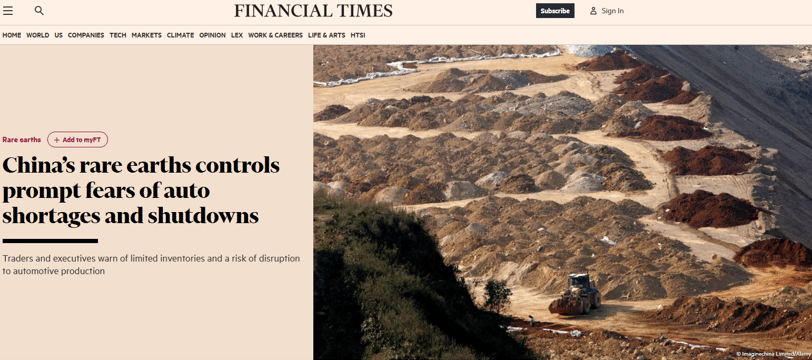China’s Rare Earths Controls Raise Fears of Auto Production Disruption
On April 4, China added seven medium‑ and heavy‑rare earth elements to its export‑control list.
NEWS
4/20/20251 min read


On April 4, China added seven medium‑ and heavy‑rare earth elements—including samarium, gadolinium, terbium, dysprosium, lutetium and yttrium-related items—to its export‑control list. Exporters now face license requirements that have not been granted, effectively halting shipments of materials critical for permanent magnets used in electric‑vehicle motors and automotive sensors .
No licences issued since controls took effect, leaving global stockpiles vulnerable.
Auto executives warn that without fresh supplies, factories in North America, Europe and Japan could face slowdowns or temporary shutdowns within months.
Beijing refines about 90 percent of the world’s rare‑earth output, underscoring its ability to exert strategic pressure amid trade tensions.
Western carmakers and governments are stockpiling existing inventories and fast‑tracking plans to develop mines, processing plants and recycling—but new capacity will take years to materialize.
Markets will watch licensing decisions closely. If Beijing issues permits, pressure may ease; if not, automakers may accelerate R&D into alternative magnet technologies and bolster on‑shore supply chains.
Source: China’s rare earths controls prompt fears of auto shortages and shutdowns

